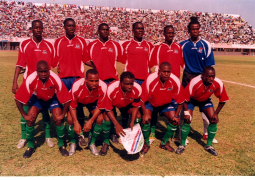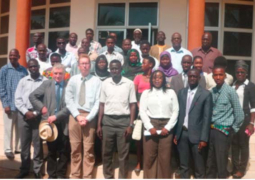The CILSS regional consultation convened in Banjul, from 8 to 10 September 2014, on the 2014-2015 agricultural and crops prospects in the Sahel and West Africa, has asked countries “to take steps to carry out the agricultural sample surveys to make production estimates available by November 2014.”
Another recommendation is to “strengthen monitoring of the regional market and cross-border trade flows.”
Participants in the press release issued at the end of the three-day meeting described this year as “an agro-pastoral season with heterogeneous crop development stages that needs to be closely monitored.”
Their recommendations include “stepping up monitoring of the agro-pastoral season by further involving the technical and financial partners, as well as farmer organisations.”
The press release contained other recommendations for the attention of CILSS, UEMOA, ECOWAS and partners.
They are to “take every action deemed necessary to collect information on the progress of the agro-pastoral season and the food and nutrition situation in the countries affected by the Ebola virus disease outbreak.”
Another recommendation is to “assess the impact of the Ebola outbreak on the food and nutrition situation, the regional market functioning and cross-border trade flows during the joint missions for the agro-pastoral season monitoring.”
Finally, they are requested to “increase humanitarian assistance in those countries affected by the Ebola virus outbreak.”
The full title of the press release is: “2014-2015 Agricultural and Crops Prospects in the Sahel and West Africa – An agro-pastoral season with heterogeneous crop development stages that need to be closely monitored.”
CILSS is the French acronym for the Permanent Interstate Committee for Drought Control in the Sahel.
The three-day meeting was hosted by the Planning Services Unit under the Ministry of Agriculture in Banjul, and was described as a regional consultation on the mid-term review of the 2014-2015 agro-pastoral season, and agricultural and food prospects.
“This meeting falls within the framework of the operation of the regional food crisis prevention and management in the Sahel and West Africa (PREGEC) programme,” the release stated.
According to the release, as regards rainfall, “in general, rainfall recorded in June and July was unevenly distributed in time and space with the region. These rain “came late in the north and west of the Sahel...Seasonal cumulative rainfalls are less than or equivalent to those of the 2013 season and generally below the 1981-2010 average.”
“On the crop situation, delays in and re-start of planning were noted in Benin, Cote d’Ivoire, The Gambia, Guinea Bissau, Mauritania, Niger, Senegal and Chad...The continuation of rains in September and October 2014 might provide residual soil moisture allowing crops to complete their development cycle.
“At the end of August, the crop development stages are very heterogeneous, from the heightening to maturation, depending on countries and localities, due to the poor distribution of rains in time and space...
“Thus, the expected crop productions (cereals and legumes) could be average in Benin, Cote d’Ivoire, Burkina Faso, Mali, Niger and Chad. They would be below average in The Gambia, Guinea Bissau, Mauritania and Senegal, which could lead to an early lean season.”





